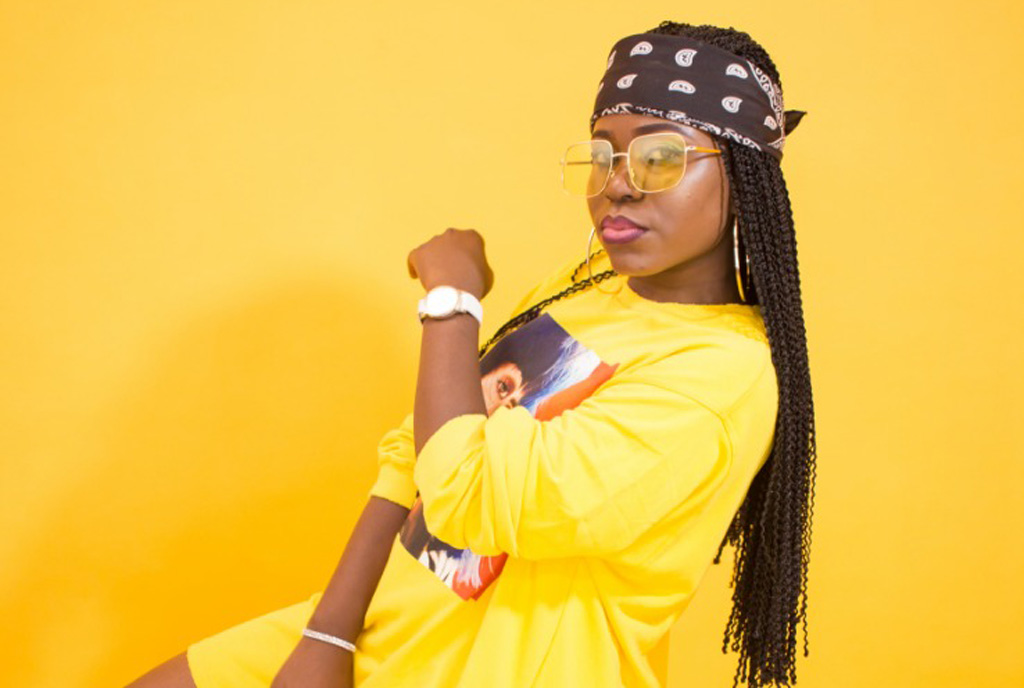GOING HARD: Born out of the need to communicate, rap music has always been known to be aggressive. Andrew Kaggwa talks to one aggressive rapper Patricia Tracy Namujuzi, alias Tushi Polo and she explains why she goes hard on those bars.
Born Patricia Tracy Namujuzi, she says she got her alias Tushi from her young brother that failed to pronounce her first name. When she started performing, she did not see the need of getting a fancy name, she took on the name she had gotten from her baby brother. Tushi Polo, who raps in both English and Luganda, is currently known for being the only female rapper on the 2019 hip hop cypher, Ug’s Most Wanted.
How long have you been performing?
I have been around for four years. I have been part of the annual hip hop boot camp and worked with different people in the industry. Besides music I am also an actress.
What’s challenging about being a female rapper in Uganda?
The first time you tell people that you are a rapper and female, they never take you seriously. From the body language, you see them believing you’re not as good as the males. But this also happens to male rappers, when they tell people that they are into music, the assumption is that they sing. because when people realise you’re a rapper, they take you less seriously.
Has this view affected you in any way?
As a rapper, I’m aggressive and people have often told me that as a female, I have to be soft. Most of the times, the industry tries to change us; there is a time I had been signed by a local label and then I did one of my songs Bitter Past, I realised that the production was mostly intended to change the way I sounded. I have never released that version of the song.
Have Ugandans embraced hip hop?
Ugandans are yet to understand what hip hop is. Much of the commercial rap we have on the market doesn’t respect the values of the art. Ugandans have accepted the softer side of hip hop which I think is an insult to music that was born out of the need to communicate. This is music that communicates raw emotions and there is no way it can only be limited to being soft.
Why is it a big deal for rappers to write their own lyrics?
Rap is one of the music genres where people tend to speak their minds, that’s how it came into existence. People were reacting to power, authorities and their oppressors through rhymes; in that sense, when a rapper doesn’t write their own lyrics, then whose emotions are they spitting? That’s the reason rappers keep outing rappers they notice don’t write their own stuff.
You act as well, what defines you more, music or acting?
I find acting easier than music. But it is always been music for me. I initially started out as a poet. I used to write poetry to myself and then one day, I was listening to a song by American rapper Big Pun and I realised that the poetry I had been writing could be turned into a song.
You took part in the Who is Who challenge, how important was this for the industry?
Who is Who was one of those things that I am sure surprised even Fefe Busi when it became popular. I don’t think he thought there would be as many replies. But it was a good thing. It got Ugandans talking about hip hop for the first time and when you look at it, some rappers were discovered out of it. The only problem is, whenever hip hop is trying to steal that spotlight like during that time, someone comes up and releases a trashy rap song and before you know, all the good vibes are lost.
Earlier this month, you were one of the performers at the annual Bayimba International Festival of the Arts, tell us about the experience?
This was my second time on the Bayimba stage. I had performed at the festival though when it was still at the National Theater. Performing there this year was a different experience especially now that it takes place at an island. I rehearsed for nearly a month because I wanted to give my audience the best.
What are you working on currently?
I am finishing a short album, some of the songs I did at the festival were from that album. The plan is to release late this year. I am also working on projects with the Amadinda Sound System, an Austrian music outfit that fuses Uganda’s ethno sounds with electronic music. We are working on a full album.
Your version of Who is Who was said to be explicit. Why are you explicit?
I express with rap and while at it, I don’t bite my tongue. I don’t sugarcoat things, that’s why I say things as they are and for many people that’s explicit.
